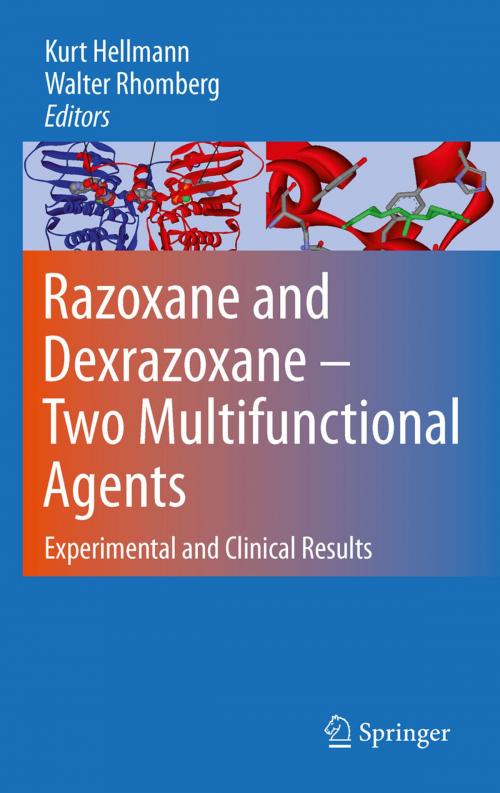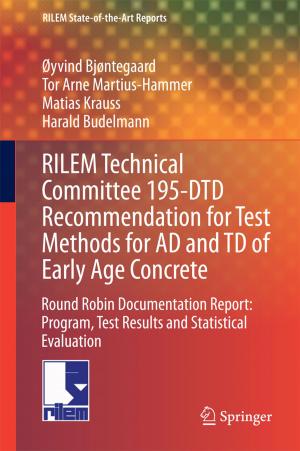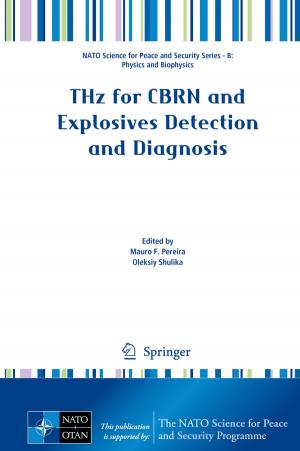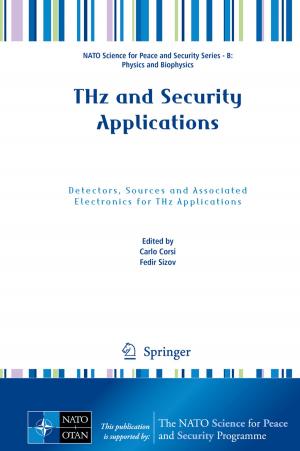Razoxane and Dexrazoxane - Two Multifunctional Agents
Experimental and Clinical Results
Nonfiction, Health & Well Being, Medical, Specialties, Radiology & Nuclear Medicine, Oncology| Author: | ISBN: | 9789048191680 | |
| Publisher: | Springer Netherlands | Publication: | August 3, 2010 |
| Imprint: | Springer | Language: | English |
| Author: | |
| ISBN: | 9789048191680 |
| Publisher: | Springer Netherlands |
| Publication: | August 3, 2010 |
| Imprint: | Springer |
| Language: | English |
Razoxane and dexrazoxane are two novel drugs with some uniquely useful features. They block cell division at the G2/M border, but nowhere else, so that they have a low toxicity profile. They suppress tumor metastasis and haemorrhages through normalization of pathological blood vessels. Razoxane potentiates radiotherapy especially in the treatment of soft tissue sarcomas and gastrointestinal neoplasms. They protect normal tissues against toxic chemicals, e.g. the myocardium against anthracyclines or subcutaneous tissue against injuries caused by incidental extravasations of anthracyclines. Dexrazoxane is the only drug approved by the FDA/EMEA for the specific purpose of preventing cardiac damage when giving the widely used and effective antitumor anthracyclines. The reduction of cardiotoxicity is achieved without response reduction or reducing of time to progression of tumors. While the full analysis of their actions at the molecular level is not yet completely understood, it seems most likely that it is via an inhibition on the topoisomerase II a. Moreover, the drugs have the ability to chelate several metals including iron, copper or zinc. The protection of normal tissues is nowhere more important than that of brain, and there are indications that the proteins thought to be responsible for the ravages of Alzheimer´s disease could be stabilized by one or both these drugs.
Razoxane and dexrazoxane are two novel drugs with some uniquely useful features. They block cell division at the G2/M border, but nowhere else, so that they have a low toxicity profile. They suppress tumor metastasis and haemorrhages through normalization of pathological blood vessels. Razoxane potentiates radiotherapy especially in the treatment of soft tissue sarcomas and gastrointestinal neoplasms. They protect normal tissues against toxic chemicals, e.g. the myocardium against anthracyclines or subcutaneous tissue against injuries caused by incidental extravasations of anthracyclines. Dexrazoxane is the only drug approved by the FDA/EMEA for the specific purpose of preventing cardiac damage when giving the widely used and effective antitumor anthracyclines. The reduction of cardiotoxicity is achieved without response reduction or reducing of time to progression of tumors. While the full analysis of their actions at the molecular level is not yet completely understood, it seems most likely that it is via an inhibition on the topoisomerase II a. Moreover, the drugs have the ability to chelate several metals including iron, copper or zinc. The protection of normal tissues is nowhere more important than that of brain, and there are indications that the proteins thought to be responsible for the ravages of Alzheimer´s disease could be stabilized by one or both these drugs.















